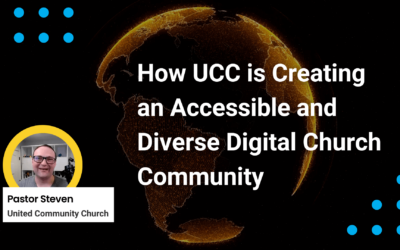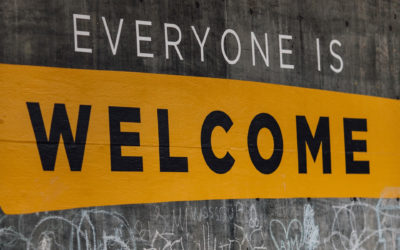You’re convinced that your church has a diversity problem. You believe it’s a nonnegotiable gospel issue and have seen the data about your neighborhood.
Now what?
It’s tempting to jump straight into creating a strategic plan or to start scheduling coffee with people, but maybe the first step is to wait instead of act.
Why?
Jesus’ command to his disciples before he ascended was:
Do not leave Jerusalem, but wait for the gift my Father promised, which you have heard me speak about. For John baptized with water, but in a few days you will be baptized with the Holy Spirit…you will receive power when the Holy Spirit comes on you; and you will be my witnesses in Jerusalem, and in all Judea and Samaria, and to the ends of the earth. (Acts 1:4-5, 8 NIV)
The disciples obeyed the command to wait.
Then on the day of Pentecost (50 days after Jesus’ resurrection), they received the Holy Spirit, speaking in tongues that thousands of people from fifteen nations heard in their native language, three thousand of whom believed in Jesus as a result. The world was turned upside down in an instant and the rest is history.
Likewise, the multilingual church today can only be powered by God’s Spirit. Human efforts alone will not produce the fruit that God desires for the Church.
So if you’re convinced God wants your church to reflect the diversity of the Kingdom, do invite others to join you, but not for coffee to bounce around ideas and cast vision. Instead, invite others to join you in serious prayer.
Ask for the Holy Spirit’s guidance and let your gathering discern what God wants you to do.
Building in Endurance from Day One
Transforming into a multilingual church is an overwhelming task.
There are attitudes that need to be unlearned and skills that need to be gained to build and sustain trust. There are logistical, political and financial issues that need to be addressed.
But the most difficult work turns out to be the spiritual (and communal) work of obeying Jesus’ command to love one another across language and cultural barriers for the long haul.
If our hearts have not been humbled and prepared for the arduous task ahead, we will give up and leave before getting to taste the fruit. If leaders rely on their strengths and ideas to bring about change instead of following the Spirit, they may find themselves burnt out and frustrated by the seeming futility of their efforts.
It cannot be overstated: just as diversity in the local church is a nonnegotiable gospel goal, the guidance and power of the Holy Spirit is the nonnegotiable means. Wait until you have it.
Conclusion: Something More Excellent Than Tongues
If we’re not pursuing Jesus’ command to love one another (including people very different than us), we’re just playing church. But if we try to do it apart from the Holy Spirit’s power, we’ll end up misguided, frustrated and embittered.
On the other hand, when the Spirit empowers us to joyfully learn to serve and love one another sacrificially, we will display something even more excellent than the gift of tongues: the love of God in a community of diverse Christ-followers that anyone in the world can experience for themselves.
So perhaps, as Jesus’ early disciples show us, the place to start is by waiting on the Lord in serious, communal prayer.
Discussion Questions
- Who can pray with you about God’s desire for your church to reflect the diversity of the Kingdom?
- Are there people of other ethnicities, cultures and languages you could invite to pray with you?
- After taking time to pray together (preferably twice), what do you think the Lord is leading your community to do?
Resources
- Ceaseless, an app to help you pray for your community
- 3 Trust Builders to Mutilingual Community
- 3 Trust Barriers to Mutilingual Community
- Neighborhood diversity data tutorial





